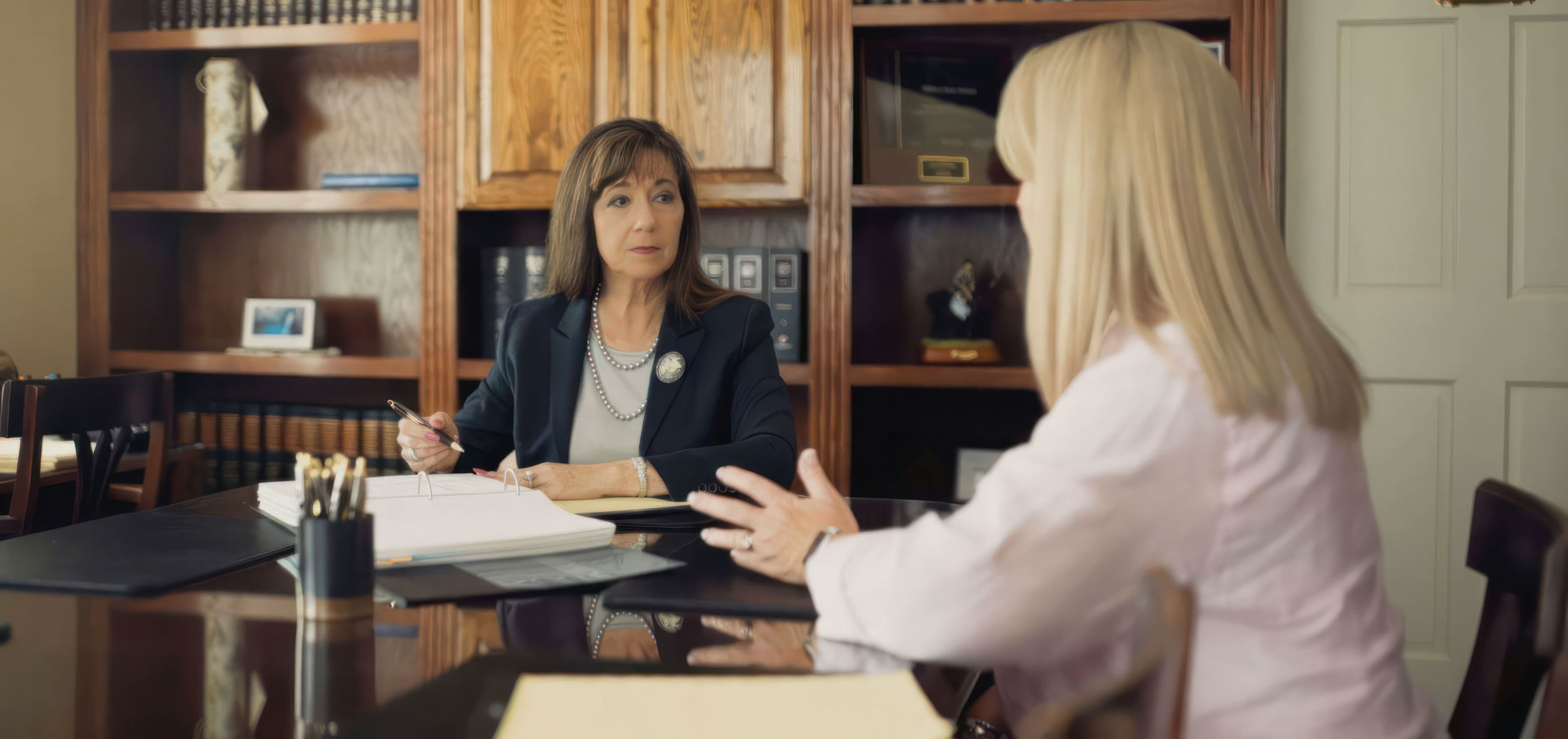Guardianship Attorney
Adults who are disabled or incapacitated cannot make legal decisions for themselves. Minors face similar issues.
The attorneys at Sutton Law Firm can help you assume legal guardianship so you can make the best decisions for your loved one.
Contact our offices in Bartow, St Petersburg, or Lakeland, FL, to learn how legal guardianship can protect someone you care about.

What Does Guardianship Mean?
A legal guardian is someone whom the court appoints to provide care and make decisions for an individual who cannot do it themselves. The ward, or person in need of care, can be a minor or an incapacitated adult family member, spouse, friend, or other person known to the guardian.
Debra J. Sutton is a board-certified attorney who is distinguished in the area of family law. During a consultation at her Lakeland family law office, our attorney can help you explore what options are best for you and the person in need of guardianship.

Who Determines if Someone Needs Guardianship?
In each guardianship case, the court decides whom to appoint as the guardian of a ward. In some cases, guardianship is automatically given, like biological parents with their children.
In cases where a ward may have cognitive difficulty due to age or a disability, the guardian may have to prove a person's incapacity. This can be done with a psychological or medical evaluation presented to the courts, verifying if the person in question can handle their day-to-day affairs.
If your guardianship comes into question or you believe a loved one is in need of a guardian, our lawyers can help the courts understand your capabilities so you can care for your loved one.
Are You Seeking to Become a Legal Guardian? Contact Our Florida Offices Today
Laws regarding property ownership and medical decisions can be unclear, especially when it comes to minors or family members who can no longer make their own decisions. The family law attorney at Sutton Law Firm can help you with issues related to guardianship, including probate disputes, estate planning, child custody, child support, and other more.
Ms. Sutton has practiced family law since 1989 and is an attorney who can handle complex guardianship cases, providing favorable outcomes for you and your loved ones. In addition to our Lakeland office, Sutton Law Firm also has offices in St. Petersburg and Bartow, FL, to serve your legal needs.
If you're seeking to be appointed as a guardian of a minor or incapacitated adult or you simply need legal assistance with one of our practice areas, request a consultation with our attorney.
Call: (863) 533-8912

"I am forever grateful." 5-Star Reviews for Our Guardianship Attorney
I highly recommend Ms.Sutton to everyone. She has incredible knowledge and very professional. Her and her staff, the ladies at the office went above and beyond, listened to me and helped me and my children through a very difficult case. They are kind and caring human being. I am forever grateful to the Sutton Law firm.
View on GoogleMrs Debra Sutton has been amazing! Very up front and honest! She has so much knowledge and know how about the laws and how to handle situations... You can’t go wrong if you hire her and her team to get the job done! They have had our backs from the get go, and haven’t let us down! Will recommend her to anyone!! We love her! If you’re wondering if they are worth it, yes they are! Make the call today! You will not regret it!
View on Google
What Qualifications Do You Need to Be a Guardian?
Before arguing your case for guardianship, our lawyer will review your qualifications to assume responsibility for a minor or adult. Under Florida law, the following qualifications must be met before the state considers granting guardianship:
- To be a guardian, a Florida resident must be legally independent and at least 18 years of age. A ward cannot be appointed as a guardian of another person.
- A judge cannot appoint another judge to be someone's guardian unless that judge is related to the ward by blood, marriage, or adoption. If a judge is appointed in this manner, he or she must serve without compensation.
- Nonresidents of Florida can serve as a Florida resident's guardian if they are related by blood, the spouse of the resident, or a legally adopted child or adopted parent of the ward.
Disqualifications for Guardianship
When our Lakeland attorney reviews your qualifications to become an appointed guardian, there are some factors that she will look for that can disqualify you. Under Florida law, you can be disqualified for guardianship for these reasons:
- Being convicted of a felony.
- Being incapable of carrying out the duties of a guardian due to incapacity or illness.
- Having been deemed abusive, or having neglected or abandoned a child.
When seeking to be a legal guardian of a ward, having an experienced attorney like Ms. Sutton review your qualifications can prevent complications. If you're unsure about Florida's guardianship laws or seek legal counsel related to making decisions for someone else, contact us at our Lakeland, St. Petersburg, or Bartow offices today.
Types of Guardianship

A Disabled Adult
The parents of a child who is physically or mentally disabled are responsible for their health and financial well-being. When the child becomes an adult, a similar level of care and support is often needed. As an attorney who has represented clients in state-level and federal-level cases, Ms. Sutton knows how to approach cases that are delicate or complicated. With her as your guardianship lawyer, you can rest assured that she will provide strong arguments to the court as to why you or a loved one should be appointed as the guardian of a disabled adult.

A Minor
A child's parents are considered their legal guardians. In the case of death or if a parent loses child custody, the guardianship of a parent may have to change. If you're thinking of taking over guardianship of a minor and wondering what it would take to be appointed, our lawyer can review the legal process with you. Ms. Sutton understands that each guardianship case is unique and will give you the individualized attention needed to produce favorable court decisions.

An Incapacitated Person
Our attorney recommends a guardian for an elderly person who is incapacitated and no longer able to take care of their everyday needs on their own. In many cases, an adult child or younger sibling is often appointed as the role of the guardian, managing finances and health decisions. Sutton Law Firm can also help you and your ward through probate issues like establishing estates and making sure inheritances are easily transferred from one party to the next.
Guardianship vs. Adoption
When it comes to minors, guardianship and adoption may sound like the same thing. However, there are some key differences.
Adoption terminates the rights of biological parents; in contrast, guardianship of a minor may be temporary. When a minor is adopted, they are not able to automatically inherit property from their biological parents. Their biological parents are also no longer responsible for child support.
The guardianship lawyers at our Lakeland practice can help you weigh the advantages of guardianship and adoption so you can decide which option is best for you and your ward.
"Knowledgeable and honest." Our Lawyer Gets Results
Mrs Sutton was very knowledgeable and honest; after her reviewing my case , my old attorney fail to complete and follow the correct step to have a better chance to win my case. Mrs Sutton counsel me and my girlfriend to avoid future mistake and will be glad to hired her for future family case. Highly recommend Mrs Sutton if you want attorney that know the law and will do whatever it take to protect her client interest and win the case!
View on GoogleIf your looking for a Lawfirm that will take your case personally and get you results, look no further. Having Debra’s extensive legal knowledge, intimidating presence and shear confidence on your side of the courtroom is truly a comforting feeling. I definitely recommend them to anyone who wants results.
View on Google





